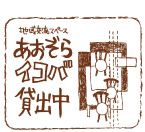The Pollution Victims’ Movement and Support by Laborers
Toshiaki Iwasa
Secretary-General, General Federation of Osaka Labor Unions
For the last 10 years I have as a labor union officer worked on supporting two pollution struggles. Once was as the secretary general for Kansai Chemical Manufacturers Labor Association (with about 30,000 members). I gave support in the Kanemi rice oil incident, which involved contaminated cooking oil. The other was as the secretary general of the Osaka Federations of Trade Unions (Osaka Roren; about 130,000 members), when I worked on Nishiyodogawa air pollution. Here I would like to report on a few things I’ve noted from my experience of lending support in these two pollution issues as a labor union official.
First is the matter of what aroused workers’ sympathies in inducing their decision to support these pollution struggles. Simply put, seeing the reality of pollution-induced harm spoke volumes to them. Needless to say, to workers who have not been directly harmed by pollution, supporting a pollution struggle is not something in which they themselves have a direct say, so there were many difficulties in getting union members’ understanding. And the key to overcoming those difficulties was showing them the sad reality. The more the workers found out about the victims pitiable situation, the more their humanitarian consciences were aroused, the more they had feelings of sympathy and solidarity, and the more they felt they must do something. That led to concrete support activities such as petition signatures, meetings, demonstrations, and protest actions.
Second is that in Japan pollution is mostly caused by the big corporations and the government. As workers listen to victims’ appeals and see for themselves the victims’ pitiful situations, they naturally feel anger at the giant corporations and the government, which do nothing to take responsibility. And to the pollution victims the “enemy” is the giant corporations and the government, which harass the workers, and so they start awakening to the fact that they have a common “enemy.” In this manner the struggle also gains the help of more and more people from workers’ class solidarity, and agreement is reached for donations of labor union funds and holiday time.
Third, labor unions able to support anti-pollution struggles can do so precisely because they are independent of capital. The overwhelming majority of Japan’s labor unions are the so-called “in-company” unions, and especially in the giant corporations there is a growing trend toward labor-capital integration. Holding sway in unions like this is a totally anti-labor policy that gives priority to benefiting companies more than workers. It goes without saying that such unions are incapable of carrying out anti-pollution struggles that would constrain corporate profits, and in that sense I take pride in the fact that the labor union to which I belong has steadfastly maintained its independence from capital, and has a policy under which progress for workers’ demands is achieved only by struggling with capital.







